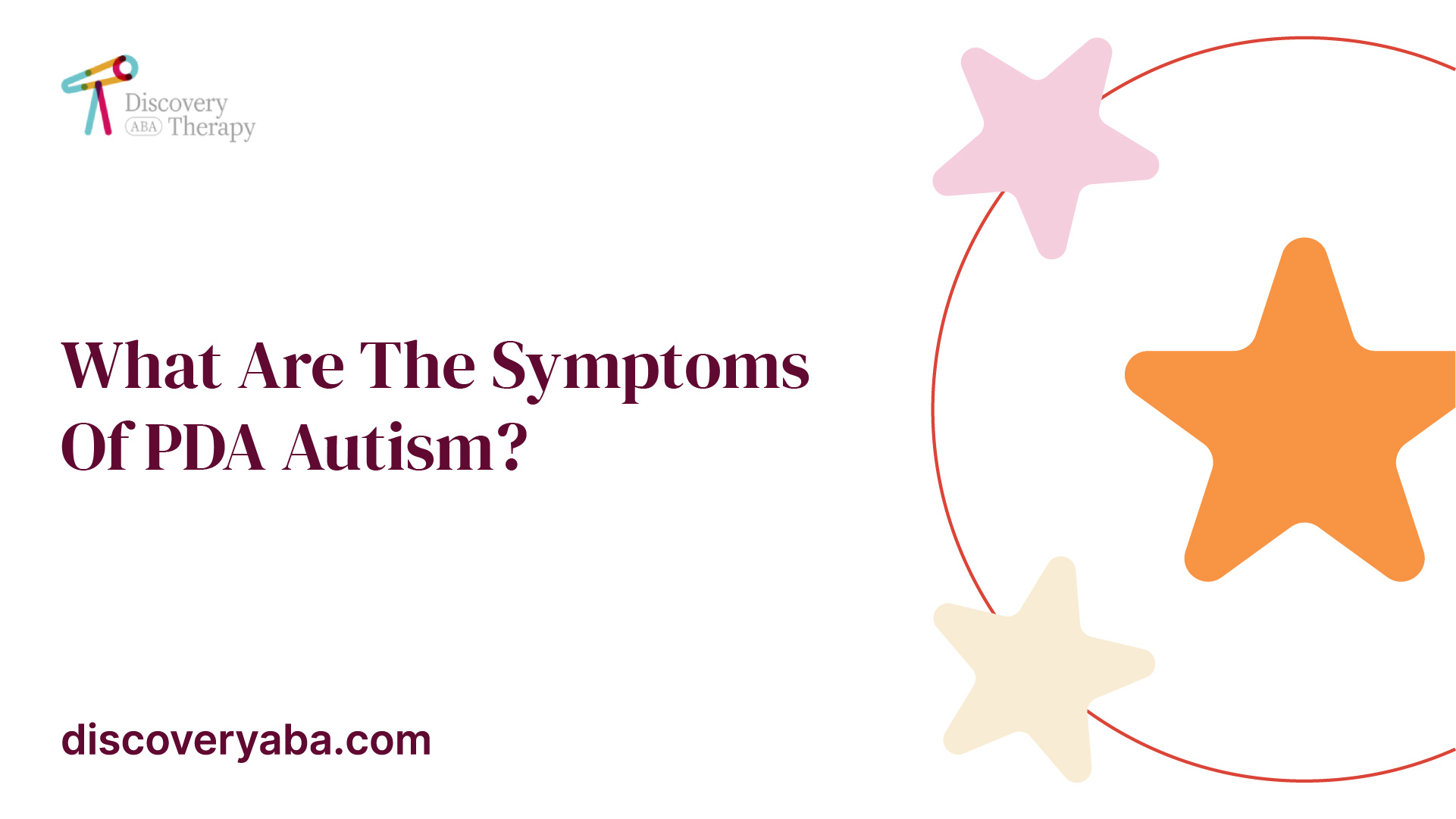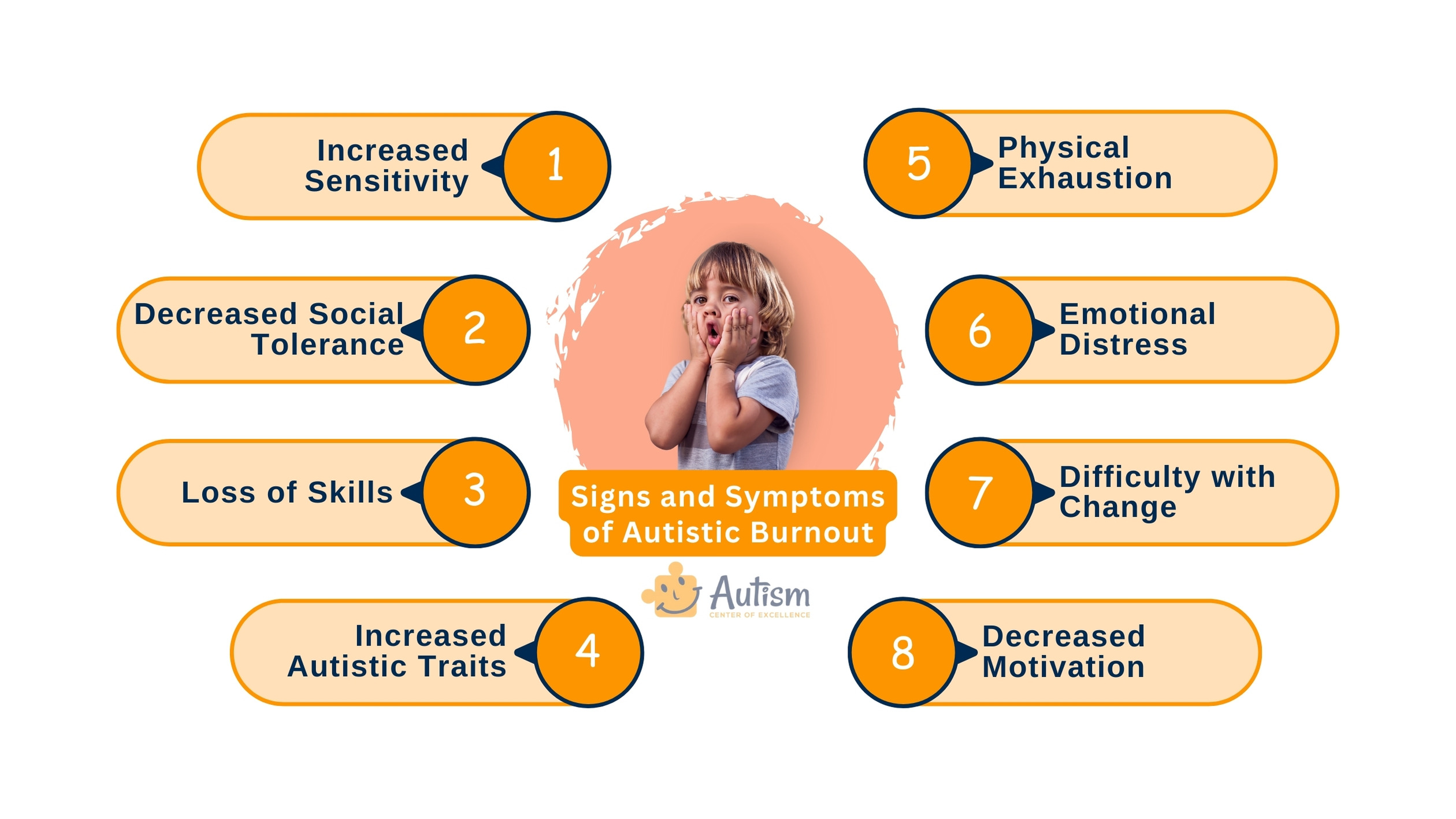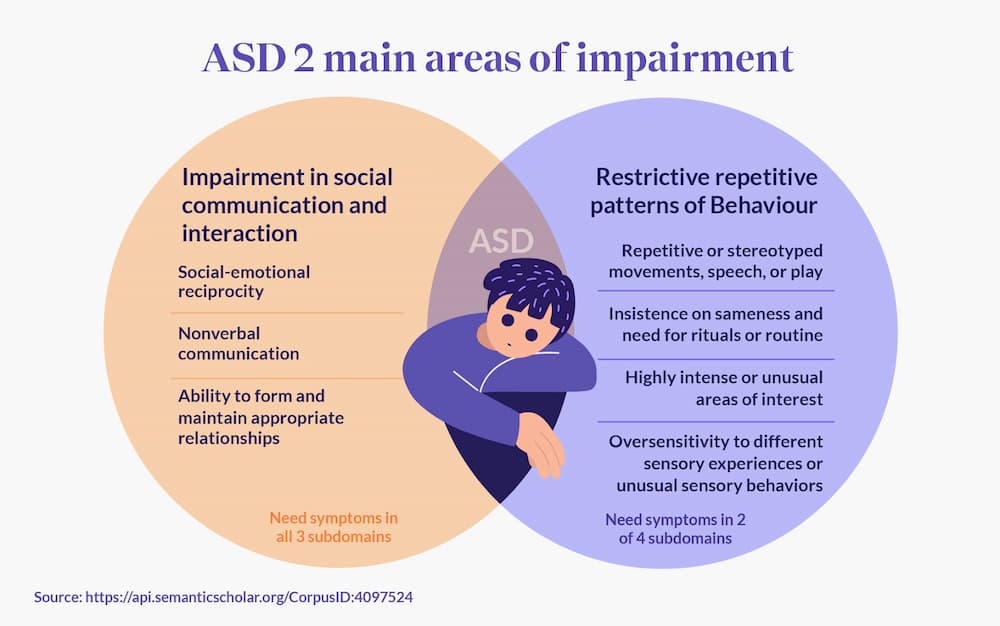Key Indications and Signs And Symptoms to Identify in Individuals With Behavioral Autism
When you come across a person with behavioral autism, recognizing crucial signs and signs is necessary. Additionally, sensory level of sensitivities can lead to frustrating experiences.
Obstacles in Social Communications
When you interact with somebody on the autism spectrum, you could observe they battle with social signs and interaction. These obstacles can make social interactions feel frustrating for them.
When they do involve, they might chat concerning their interests in excellent information without noticing if you're interested. Understanding these difficulties can help you approach interactions with compassion and perseverance, promoting a much more comfy atmosphere for both of you.
Problem With Verbal and Non-Verbal Communication

Non-verbal interaction can be also more tough. You may see an absence of eye get in touch with or limited usage of gestures, which can make communications feel unpleasant. Faces might not always align with the discussion, leading to complication regarding their sensations. Identifying these indications is vital, as it assists you better assistance and engage with individuals on the autism range. By recognizing their communication obstacles, you can promote a lot more significant connections and supply a much more encouraging environment.
Recurring Habits and Regimens
Interaction challenges usually accompany other indications of autism, such as recurring actions and a strong preference for routines. You might observe that people with autism often take part in particular, repetitive activities, like hand-flapping, shaking, or duplicating expressions. These actions can provide comfort and a sense of control in an often overwhelming world.
Regimens are just as important; numerous individuals prosper when they adhere to an organized timetable. You might locate that adjustments to these regimens can cause substantial distress. If they have an everyday ritual of eating breakfast at a details time or adhering to a particular path to institution, any type of disruption can cause anxiety.
Identifying these patterns helps you recognize their actions and provide assistance. By fitting their requirement for routine and permitting recurring actions, you can create an extra comfortable environment that alleviates their difficulties.
Sensory Sensitivities

Usual Sensory Triggers
Sensory sensitivities can substantially affect life for individuals with autism, as specific stimulations typically cause overwhelming responses. Usual sensory triggers include loud noises, intense lights, and strong smells. You could observe that sudden noises, like sirens or alarms, create stress and anxiety or distress. Likewise, fluorescent illumination in shops can really feel harsh and uncomfortable. Textures can also play a considerable duty; harsh textiles or certain food structures may be unbearable for you. In addition, crowded areas can bewilder your detects, making it hard to focus or unwind. Comprehending these triggers can assist you handle your setting much better. By being mindful of what influences you, you can take actions to decrease pain and boost your day-to-day experiences.
Behavioral Reactions Discussed
Comprehending your behavioral responses to sensory level of sensitivities is crucial, as they usually disclose exactly how you communicate with the world. You could observe that particular noises, lights, or structures overwhelm you, leading to anxiety or pain. When faced with these stimuli, you could take out, cover your ears, or even respond strongly. These reactions aren't just traits; they're your method of coping with overstimulation. You might also locate on your own seeking details sensory experiences, like deep pressure or quiet settings, to help ground on your own. Acknowledging these patterns helps you comprehend your needs far better and can assist how you connect them to others. By acknowledging your sensory level of sensitivities, you can work in the direction of producing an environment that really feels much more convenient and comfortable for you.
Coping Approaches Introduction
Identifying your sensory level of sensitivities is simply the very first step; now it's time to explore coping strategies that can why not find out more help you take care of those experiences effectively. Start by developing a sensory toolkit customized to your requirements. Developing a structured routine can also provide predictability, reducing anxiousness around sensory overload.
Limited Rate Of Interests and Focus
While many people establish a wide variety of interests, those with autism often show restricted passions and an intense concentrate on specific topics. You might notice that somebody with autism can spend hours diving right into their favorite topic, whether it's a certain kind of train, a specific flick, or a scientific concept. This extreme focus isn't simply a hobby; it can come to be a central component of their identity and social communications.
You might find that discussions focus on these rate of interests, and they may battle to engage in more comprehensive topics. For them, these concentrated interests give comfort and a feeling of mastery. While it's vital to motivate expedition of new subjects, valuing their enthusiasms is similarly important. By recognizing and acknowledging these limited interests, you can promote an encouraging environment where they really feel valued and recognized, enabling for even more purposeful connections and communications.
Emotional Policy Difficulties
Individuals with autism commonly encounter obstacles in psychological guideline, which can be influenced by their intense focus on certain passions. You could see that when a person is deeply involved in a favored activity, they can experience strong feelings, whether exhilaration or frustration. When points don't go as planned., this strength occasionally makes it difficult for them to change equipments or handle their sensations - Autism Behavioral Therapy.

Irregularity in Developing Milestones
When it comes to developing find out this here landmarks, you'll see that people with autism usually reveal a wide range of variability. You could see a youngster stand out in language abilities however struggle with social interactions.
It's vital to acknowledge that each individual's journey is unique. Some may create intricate abilities early, only to face challenges later on. Others could take longer to achieve fundamental turning points but then flourish in certain locations. Observing these patterns can assist you understand their staminas and needs better.
Regularly Asked Concerns
How Is Autism Diagnosed in Kid and Adults?
To diagnose autism in adults and kids, specialists examine behavior, communication skills, and social communications. If a private meets the standards for autism spectrum problem., they frequently utilize standard tests, interviews, and monitorings to identify.
Exist Different Kinds of Autism Spectrum Disorders?
Yes, there are various sorts of autism spectrum problems, including Asperger's syndrome and prevalent developmental disorder-not or else specified. Each kind differs in intensity and attributes, so recognizing these distinctions can assist you better assistance individuals with autism.
What Treatments Work for People With Autism?
When taking into consideration efficient treatments for individuals with autism, you'll locate choices like Applied Behavior Evaluation, speech treatment, and work therapy. Each technique can assist enhance interaction, social abilities, and everyday operating tailored to private demands.
Can People With Autism Lead Independent Lives?
Yes, individuals with autism can lead independent lives. With the best assistance, abilities training, and sources, you can aid them develop self-sufficiency, handle everyday jobs, and grow in various atmospheres, promoting their freedom.
Just How Can Families Support Loved Ones With Autism?
You can support your loved ones with autism by producing a structured atmosphere, motivating their passions, exercising perseverance, cultivating interaction, and advertising social abilities. Commemorate their success, despite exactly how little, and develop a helpful area.
Although several more helpful hints people on the autism range can make use of and recognize language, they typically deal with considerable obstacles with both non-verbal and spoken interaction. Recognizing these indications is vital, as it assists you much better support and involve with people on the autism range. You could see that people with autism commonly involve in certain, repetitive activities, like hand-flapping, rocking, or repeating phrases.Sensory sensitivities can significantly influence day-to-day life for individuals with autism, as particular stimulations usually cause overwhelming responses.When it comes to developing milestones, you'll notice that people with autism commonly show a wide array of variability.
Comments on “Understanding behavioral triggers through Autism Therapist methods”